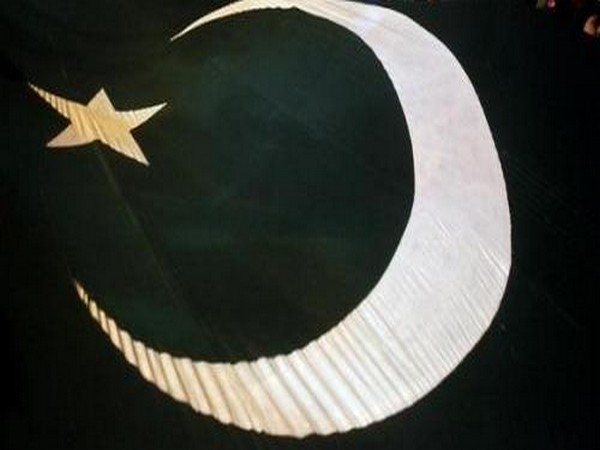London: In present uncertain financial and political situation, it is certain that Pakistan Government will seek foreign aid and loans for survival.
According to informed sources in Islamabad, the government wants to acquire financial strength before the July 25 general elections.
Sources quoted economic pundits in the government as suggesting that the current account deficit can be stabilised by using rapidly dwindling foreign currency reserves.
There is growing speculation that the government will have to seek a loan package from the International Monetary Fund (IMF) following the elections, for the second time since 2013, amid fears of being faced with a balance of payments crisis.
Caretaker Finance Minister Shamshad Akhtar told a press conference in Islamabad on Tuesday that the government has to finance this trade deficit gap of USD 25 billion.
The announcement came hours after the State Bank of Pakistan devalued the rupee by 3.7 per cent, the third devaluation since December. It is also saddled with a heavy public debt – 70 per cent of GDP, according to Akhtar – along with a yawning fiscal deficit.
The economy grew by 5.8 per cent during 2017-18, missing a government target by two per cent, according to documents from the finance ministry. Plagued for years by a Taliban insurgency, it has been battling to get its shaky economy back on track and end the energy crisis crippling industry.
The growth in GDP comes amid structural reforms, an improved energy sector and China’s ambitious multi-billion dollar infrastructure project – the China-Pakistan Economic Corridor – linking its western province of Xinjiang to the Arabian Sea via Pakistan. However, fears remain about Pakistan’s ability to repay the Chinese loans, with much of their terms shrouded in secrecy.
The Pakistani rupee slumped 3.8 per cent against the dollar on Monday before slightly recovering in what appeared to be the third currency devaluation in seven months by the central bank amid a balance of payments crisis.
The rupee drop threatens to squeeze consumers, coming just days before Eid-ul-Fitr and ahead of the July 25 general election.
The apparent devaluation shows signs of vulnerability in the country’s nearly USD 300 billion economy, as dwindling foreign reserves and a widening current account deficit trigger speculation about going back to the International Monetary Fund for loans for the second time since 2013.
In December and March, the rupee was devalued, each time by about five percent by the central bank. Pakistan’s economy is expected to expand by close to six percent this year, the fastest pace in more than a decade, but a widening of the current account deficit has brought new worries.
The current account deficit now stands at USD 14 billion, around 5.3 percent of gross domestic product, an SBP official said.
The economic outlook has been hurt by the fast depletion of foreign currency reserves, which now stand at just over USD 10 billion.
Pakistan is currently in discussions with China for loans to ease pressure on its foreign currency reserves. Over the weekend, the shortage of foreign currency widened the spread at which the rupee is traded in the open market and the interbank market to four rupees.
The Supreme Court on Monday summoned the governor of State Bank of Pakistan (SBP) and federal finance secretary to explain what steps were being taken for encouraging people to declare their foreign bank accounts and assets accumulated abroad.
Earlier, a three-judge bench headed by Chief Justice of Pakistan Mian Saqib Nisar expressed displeasure over the non-appearance of the SBP governor and the finance secretary.
The chief justice observed that the court was dealing with an important case and the SBP governor and the finance secretary did not bother to attend the proceedings.
Justice Umar Atta Bandial and Justice Ijazul Ahsan were the other members on the bench. Federal Board of Revenue (FBR) Chairman Tariq Pasha and a director of the SBP were present in the court.
Rejecting the suggested of an additional attorney general to postpone hearing for after the Eidul Fitr holidays, the bench sought appearance of both the SBP governor and finance secretary after two hours. Later, the bench adjourned hearing for Tuesday.
During Monday’s hearing, Chief Justice Nisar regretted that every newborn in Pakistan was under huge loans due to wrong policies of the governments. “Dams are not being built, standard of education is going down, garbage is being disposed of into sea but people are allowed to take their money abroad unchecked,” lamented the chief justice.
To a court query, the FBR chairman disclosed that Rs100 billion had been paid to tax filers under the head of sales tax return, however disbursement of Rs105 billion was still pending.
Chief Justice Nisar also expressed concern over decreasing exports and rampant smuggling in the country. FBR chief Pasha sought permission to give an in-camera briefing to the judges on the issue of smuggling, which was allowed by the chief justice.
The views expressed in the above article are that of Mr. M. Sarwar, Chief Editor, The Nation.
(ANI)

